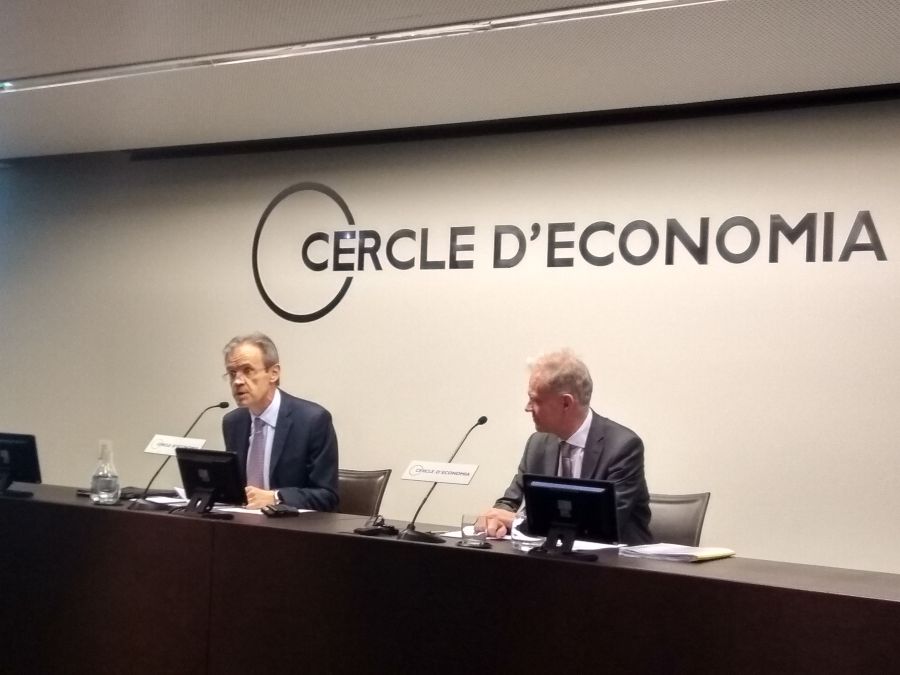The DG for budget, Gert Jan Koopman, recognized himself that the European budget is not a conversation that spontaneously arises in a lunch between friends, not even among those who move in the european environment. Even in percentage terms, it does not seem that 1% of European GDP - which is the one that usually manages this budget - has a huge importance, but none of this prevents the negotiations for the euro-budget from coming to endless meetings between the political leaders of the Member States.
What was presented by Gert Jan Koopman in Barcelona was not the budget itself - it still has to go a long way before the approval - but the proposal made by the European Commission. For Koopman, this is a "realistic" proposal for multiannual budgets (2021-2027) that, on this occasion, will not count on the participation of Britain, which until now has been a net contributor.
For these budgets, the Commission establishes priority areas for investment and marks the approval of a flexible budget as a milestone, since a year-round budget certainly requires some adaptability in the case of unforeseen events. Among the priority areas, there are development and innovation, sustainability and environment, youth, migration and defense and security. On the other hand, the downward trend in the dedicated budget for the common agricultural policy (CAP) continues, although it still accounts for about 25% of the total budget, for a sector that does not occupy more than 1% of the population.
For the general director of budgets, investment in innovation and development is crucial to compete worldwide. "It's about moving first and moving better," Koopman said. "If we want to be serious, we must invest in research and technological development," he added. In this way, the new European digital program plans to invest in super-computing, artificial intelligence, digital-network capabilities and the fight against cyber attacks. Koopman emphasized that Catalonia is the first European region to attract resources for innovation aimed at small and medium-sized businesses. In this regard, the Director General of Budgets emphasized the importance of small investments for SMEs and local administrations that, although they do not have an impact on macroeconomics, contribute to the improvement of the quality of life in a practical way.
Catalonia is the first European region to attract innovation resources for SMEs
One of the other traditional hot spots in the budgets are regional development funds and cohesion. In these multiannual budgets, the Commission proposal favors Spain, which would receive a 5% increase. This is due to a decrease in the cohesion funds destined for Eastern countries, which in the last years had taken the most important part of the cast.
In order to make the budgets effective, however, there is not enough general consensus among the Member States - already difficult - but rather that the European Union needs to obtain funding from its own funds, beyond the contributions of the state itself. For this reason, the Commission has proposed some options, such as the common consolidate corporate tax base or a national contribution based on the amount of non-recycled plastic, among other options studied.








